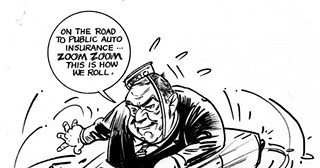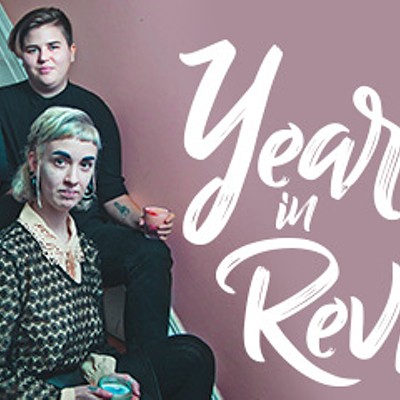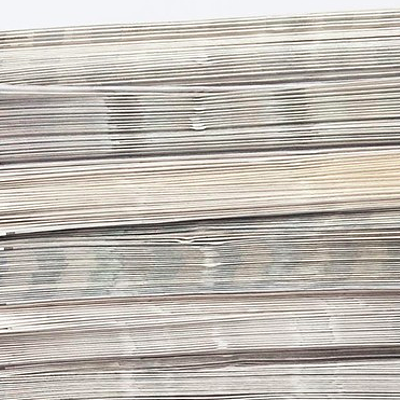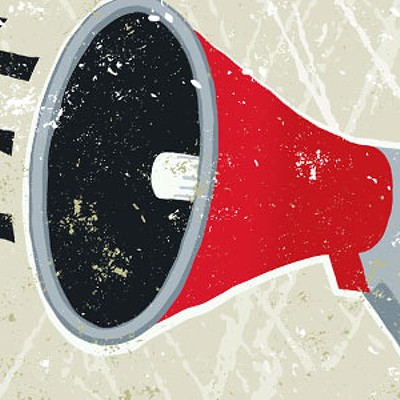OK, here comes my $250- million question: Who the heck is running this province, fat-cat business tycoons or our new NDP government? Warning: Before answering, consider the evidence presented two weeks ago to the Nova Scotia Utility and Review Board. It concerned the huge profits the auto insurance companies raked in after the Tories and Grits passed a law in 2003 imposing a $2,500 cap on pain and suffering awards for so-called "minor injuries" in car accidents.
Ted Zubulake, managing director of the big actuarial firm Oliver Wyman, testified that in the five years after the cap was imposed, the insurance companies enjoyed an average, after-tax return on equity of 26 percent, more than two-and-a-half times the 10 percent return that would guarantee a healthy profit. Zubulake also presented a chart showing that in 2003, the year the companies were crying poor, jacking up insurance rates and pressing the government to legislate a cap on "soft tissue" injuries, they enjoyed a staggering average, after-tax return on equity of 38 percent. Barry Mason, a lawyer representing a coalition of consumer groups, told the Board that between 2002 and 2007, rates of return above 10 percent netted the companies an extra $250 million in profit. "A quarter of a billion dollars, in our little province," Mason said. "It's obscene. It's scandalous. If people knew this, they would be outraged."
Well, some people, Barry, but obviously not all. As an opposition leader not long ago, Darrell Dexter was fully aware of fat industry profits. In 2006, Dexter declared the province had been "duped" by the insurance companies. "They put incredible pressure on government to bring forward a bill to essentially take away the rights of consumers," he said. "Here in Nova Scotia, they must have thought they'd found the promised land in a government that was willing to bend over backwards to accommodate them."
In opposition, the NDP had already brought in a private member's bill to eliminate the so-called "minor injury" cap. "Essentially the legislation that the government brought in sacrifices the rights of victims of car accidents for the benefit of insurance companies. It just couldn't be any clearer or more simple," Dexter told me in 2005. He went on to promise that an NDP government would take away the power of insurance companies to gouge consumers by setting up government-run insurance modelled on systems in BC, Saskatchewan and Manitoba. "There is no question that the driver-owned systems that exist across the country provide the fairest and lowest cost auto premiums," Dexter said. "There is just no real good reason for not having a public auto insurance system."
But now in power, the NDP has changed its tune. Finance minister Graham Steele has set up a review of auto insurance, but says there are no plans for a public system. "It's not even on the table right now," he told reporters in April. As for the "minor injury" cap, lo and behold, the NDP has decided to keep one after all---albeit a less stingy one. It has tripled the cap to $7,500 and narrowed the definition of "minor injury" to include only strains, sprains and whiplash. So much for "the rights of victims of car accidents" up against big companies with deep pockets.
Steele claims the cap is needed to keep insurance affordable, but actuary Ted Zubulake argues that bodily injury claims have declined by 40 percent since 2002, not because of the minor-injury cap, but because of better driving behaviour, improved road conditions and especially the installation of car safety features such as more effective headrests, and front and side airbags. So, declining numbers of claims, combined with a cap that kept injury settlements low, allowed the big insurance companies to rake in hundreds of millions in windfall profits. Now that the NDP has decided to keep a lid on payouts for so-called "minor" injuries, the big companies will continue to make out like bandits.

















